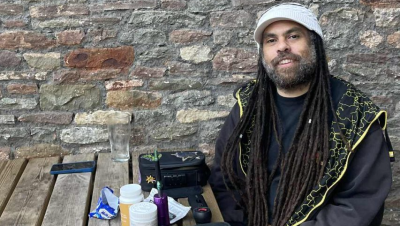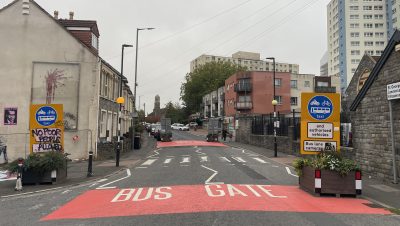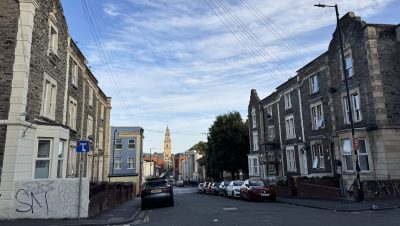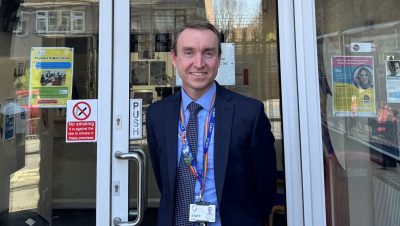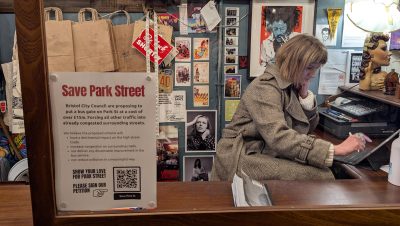Features / accessibility
Living with invisible disabilities: Imogen’s story
Look up the word ‘disability’ and more often than not the image of disability is a person who uses a wheelchair, perhaps a cane – a very rigid definition.
That picture informs a perception of what life looks like with a disability and makes it the default, leading people to overlook those who are also either disabled or neurodiverse but don’t fit this mold of what they expect it to look like.
Ramps, wheelchair accessibility on public transport parking pays, are so often a point of contention, particularly in city planning.
is needed now More than ever
But the barriers to accessibility are numerous, solutions are not often well thought through, making accessibility feel like an afterthought, neglected at the expense of ‘progression’.
Add to that the political weaponisation of the different forms of disability allowance to cause polarisation across the masses, and disabled and neurodiverse people are charged with advocating for themselves to an unsympathetic or unthinking crowd.
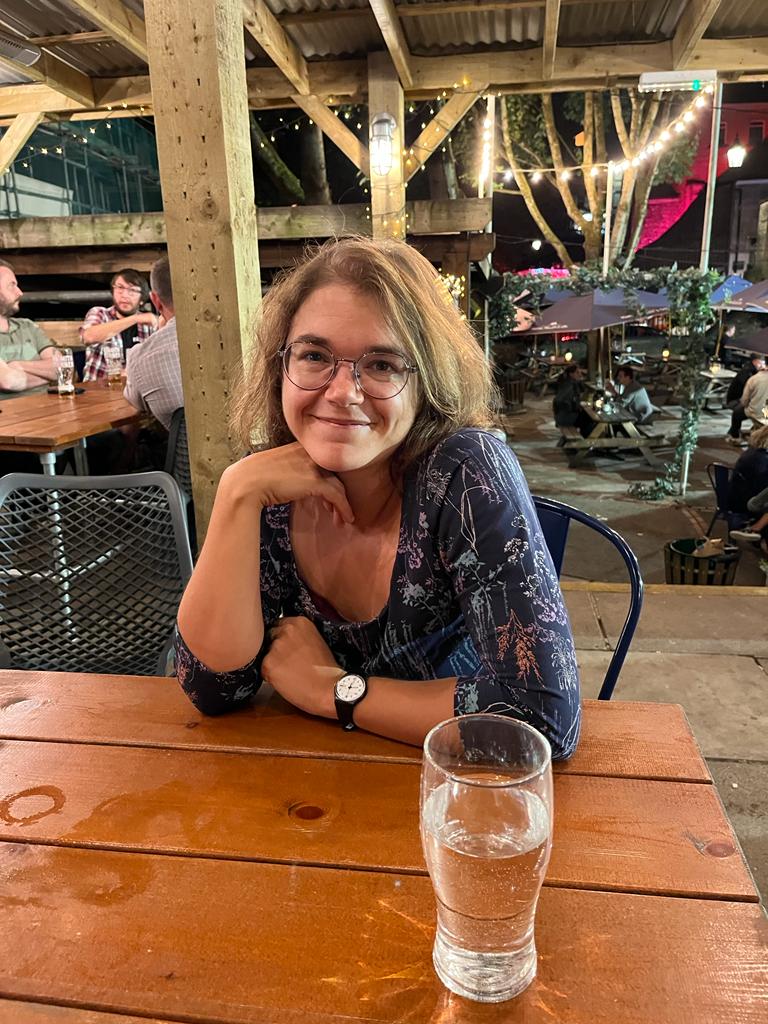
For Imogen her friends are her lifeline. While her disability is often physically and emotionally draining, forcing herself to be social helps to renew her spirit -photo: Imogen Cauthery
Imogen Cauthery has lived in Bristol for three years having previously lived in Bath and London.
She says the move to our city was one of the biggest mistakes of her life. Imogen suffers with epilepsy due to a severe brain injury she experienced aged nine in 1996.
As a result she has significant memory impairment, learning difficulties and seizures.
Despite the injury and subsequent conditions, she has lived life with a level of drive, determinism and depth of richness that would put most people to shame.
Socialising is one of the aspects of life that motivates Imogen to push herself. “Often in the evening I don’t have the energy, but on the days I’m feeling brave, going out and seeing my friends, they give me an uplift and help my mental health,” Imogen told Bristol24/7.
But she says getting out is challenging. As much as she wants to, due to her condition she isn’t legally allowed to drive and it impedes socialising, getting to her neurologist appointment and to work: “Transport is everything to me. I need proper transport to survive, freedom means the world to me and I can’t live without it.”
Imogen is reliant on buses in particular, but she says the lack of reliability and consistency makes getting places really difficult.
She cites a particular visit to the mental health charity Bristol Changes recently: “It was such a hassle. It was like two long bus rides and then one was delayed and so I had to wait, only for it to cancel.
“I had to take a cab in the end, £15 down the drain. I shouldn’t have to use so much money on cabs to get around.”
Imogen is entitled to a disabled person’s bus pass which allows disabled people to access free travel on off-peak times.
This is limited from 9am to 4pm and anytime Saturday and Sunday.
It drastically reduces the ability to socialise, limits what work a person can take and feels like a curfew to Imogen who believes that implementing a 24-hour disabled person’s bus pass would be hugely beneficial to the likes of her and others.
Of Bristol’s new Green-led council, Imogen says: “I think if their objective is to be green and to make this the UK’s best eco-city or whatever, then they’ve certainly got to improve public transport.”
Even as a pedestrian, she mentions having to add time onto her journey because specific roads are closed.
As she is someone who struggles with recognising places, no matter how familiar they are, she has to plan her routes and often arrives at her destination more than 30 minutes early to reduce the stress of it all. “When you have no confidence, it’s just hard to survive.”
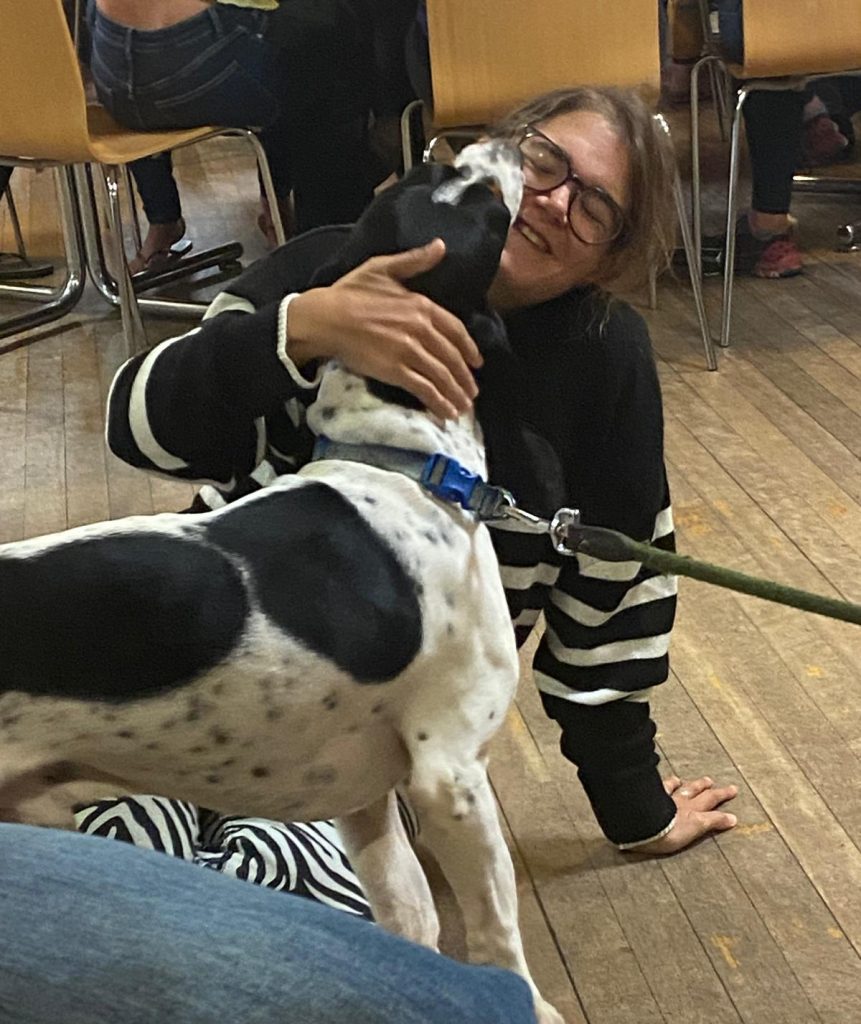
As someone who is passionate about wildlife she understands and appreciate the need to drive positive change to improve the environment but she is keen to assert that these changes cannot be at the expense of disabled people – photo: Imogen Cauthery
While Imogen surmounts the challenges she faces, they take a toll on her mental and physical wellbeing.
In 2019 she was diagnosed with functional neurological disorder (FND) due to stress.
This condition also causes seizures known as focal unaware seizures; often accompanied by unpredictable behaviours such as lip smacking, grabbing people, temporary memory loss and confusion.
One time Imogen even ended up in the middle of a busy road, until a passerby pulled her out. She says that this has been scary.
But what she’s keen to illustrate most is that sometimes the behaviours are often perceived to strangers as aggressive or weird and having a dialogue about invisible disabilities and raising awareness of it is as important as improving transport.
When having her focal unaware seizures she says that her friends “understand that I can be really stroppy at times and not myself because of my brain injury.
But when I go into Bristol, it’s like, oh, what’s gonna happen? Are these people gonna have patience and understanding? It’s very, very embarrassing.”
When having her epileptic fits, she feels far safer, because she knows no-one will pass somebody on the floor shaking.
The disadvantage to that though sometimes is when having a non-epileptic seizure, it isn’t required for her to have medical assistance, which she tries to communicate but she is regularly ignored by people with good intentions.
But more often than not, she needs someone to reassure her, tell her where she is, or lighten the situation with a joke, while her memory returns.
She says: “In my case I’m not saying people should know everything about epilepsy. We just want more awareness. For people to think before they instantly judge.”
********************
Read next: The hidden struggles of caring for a child with life-limiting conditions
********************
That feeling of judgement is part of the reason Imogen now wears the hidden disability sunflower lanyard less, explaining that she does not like “being labeled as someone with epilepsy and as someone who’s disabled.
I only wear it when I get warning symptoms that a seizure may be coming on.”
She also believes that no-one takes the lanyard, adding “the likes of my friends at support groups, they just don’t wear them because no-one pays attention to them anymore. Before Covid-19 I think when it came out it was known widely.”
But consequently people without disabilities were allegedly taking advantage by buying lanyards online, bypassing the eligibility process.
She tells me that because of a few people doing this, it feeds into the negative and damaging narrative that people are taking advantage of the disability system.
What is crucial in defining the experience of someone with an invisible disability versus a visible disability is this idea that people question the validity of the disability with one that they cannot see, wrongly seeking proof to validate the existence of it.
To this suggestion, Imogen, with fierceness and indignation, says: “You don’t have to have evidence, like someone wearing a lanyard or using a wheelchair or whatever.”
Ultimately, Imogen says that Bristol City Council “should have much more understanding and support for those with hidden disabilities because it’s just such a challenge living with one, let alone multiple ones”.
Motivating yourself when you have a visible or invisible disability in a city that may not be designed for it, is clearly a constant fight.
Add to it stigma, prejudice and misunderstanding informed by poor education or awareness and it can feel hopeless.
Imogen adds: “I want to just say to people, if you don’t have a hidden disability, really value how much freedom you have.”

Imogen is an avid adventurer, seen her having climbed Kilimanjaro and will be releasing a book. She regularly highlights that she is more fortunate that most with a disability, having fought long and hard to receive compensation for the car accident that left her disabled – photo: Imogen Cauthery
According to national charity Epilepsy Action, epilepsy affects 630,000 people in the UK, with around 79 new people are diagnosed every day – meaning three new diagnoses an hour, 500 a week and almost 2,500 a month.
65 per cent of people with epilepsy say their condition is misunderstood by most and 33 per cent have even been bullied or harassed because of their epilepsy.
The organisation has focused on expanding the disabled bus pass hours, and making it easier to apply for one.
Director of health improvement and influencing, Alison Fuller said: “Many people with epilepsy can’t drive, and public transport is their only option to have some form of independence, including to get to work.
“But in some areas of the country, people with epilepsy are only able to use disabled bus passes after 9 or 9.30 am. It’s very obvious this is not fit for purpose, when we know this is the time many people start work.
“We also think staff should be trained to recognise and support people with epilepsy, should they happen to have a seizure on public transport.
“We have heard from many people who have had seizures on buses and trains and not received any support.
“Some have been accused of being drunk or on drugs, been denied access to priority seating and or been kicked off buses or trains after or even during a seizure.
“With local elections approaching, we will be calling on councillors to back reforms that allow disabled bus passes to be used at all times and ensure transport staff are trained to support passengers with epilepsy.
“We urge our supporters to raise their voices and push for these essential changes by writing to their local candidates.”
View this post on Instagram
In October 2024, Bristol City Council sat down to explore ways in which the city can be made more accessible. Labour councillor Kelvin Blake, who tabled the meeting, said that Bristol “should aim to be the most accessible meeting in the country”.
The actions taken forward by the council were considered to be ‘watered down’ to meet financial pressures.
But they resolved that all of the eight new policy committees under the new committee system that replaced the mayoral model must work with disability groups to come up with ways to improve the city.
Updates will be reported back later this year. Much of the conversation was dominated by ‘realistic’ talk of how these aspirations must be managed to fit what they expect to be costly infrastructure.
The other caveat was how to accommodate these changes while still striving for sustainability and a greener future. If we are to improve our transport infrastructure, we cannot do so without bringing people with disabilities with us and engineering it into every part of the process.
We approached Bristol City Council for a statement in response to Imogen’s story but they did not provide us with one.
The West of England Mayoral Combined Authority say they and North Somerset Council have set out a West of England Bus Passenger Charter signed up to by 12 operators, “which includes commitments on accessibility and improving services”.
A spokesperson from First Bus said: “Latest figures show that 98 per cent of planned bus trips took place in full with the remaining two per cent cancelled or reduced for a number of reasons, including driver sickness, vehicle issues and traffic congestion.
“Similarly, 82 per cent of our buses ran on time, which is above the average figure for England at 80 per cent. We carry 1m passengers every week, and while we recognise we don’t get it right for every single one, we’re doing as much as we can to improve services.
“We’re investing in our fleet of vehicles to ensure they are more reliable; we’re working closely with local transport authorities to discuss how we can tackle congestion and also improve bus prioritisation; we’re continuing to develop the latest technology which is allowing us to better plan our network; and we’re investing in our people, including through increased salaries, to encourage more people to join our team.”
Main photo: Imogen Cauthery
Read next:
 Our newsletters emailed directly to you
Our newsletters emailed directly to you













